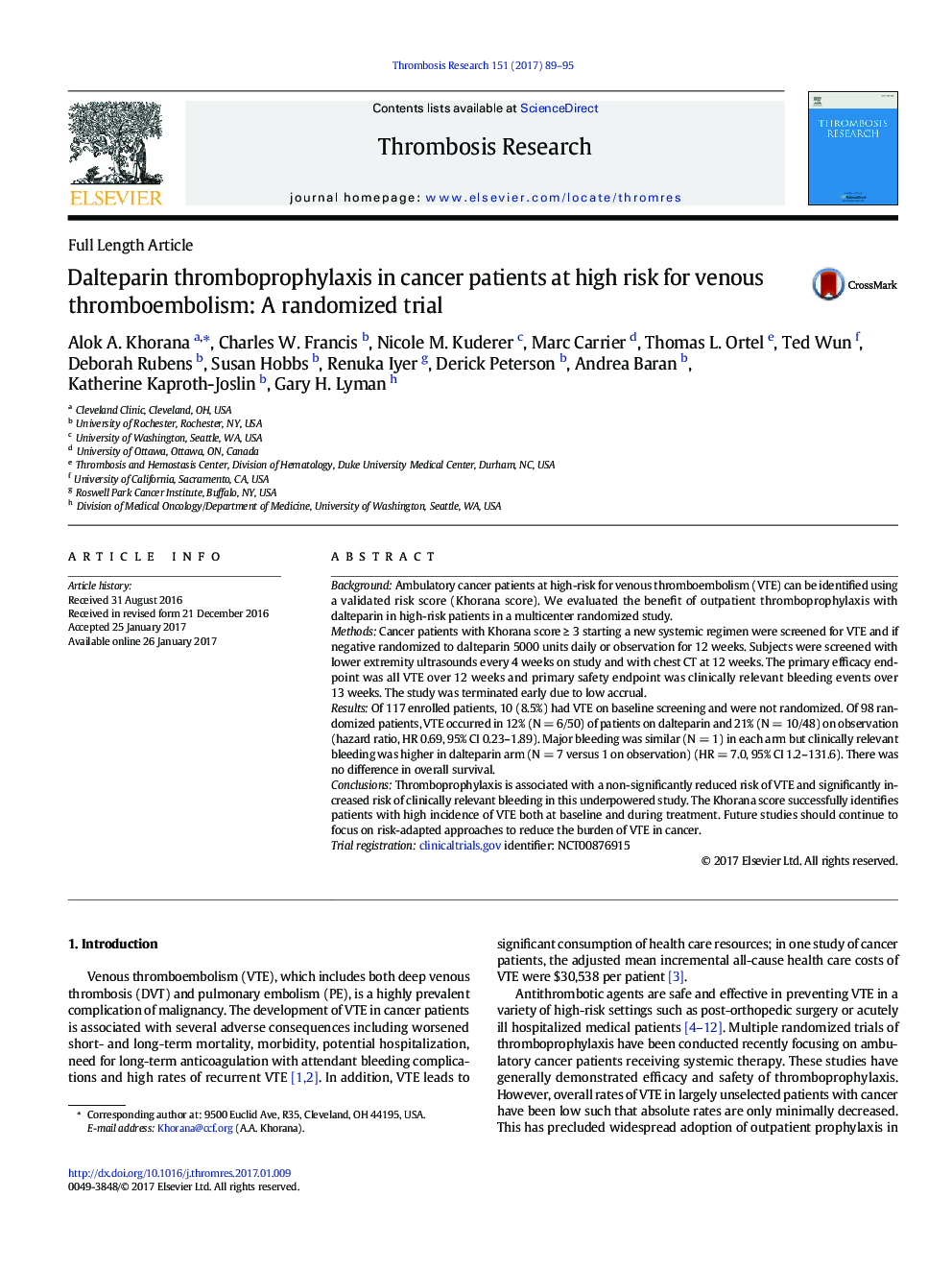| Article ID | Journal | Published Year | Pages | File Type |
|---|---|---|---|---|
| 5622049 | Thrombosis Research | 2017 | 7 Pages |
â¢We evaluated outpatient thromboprophylaxis with dalteparin in high-risk cancer patients in a multicenter randomized study, terminated early.â¢Thromboprophylaxis was associated with a non-significantly reduced risk of VTE and significantly increased risk of clinically relevant bleeding but no impact on major bleeding.â¢The Khorana score successfully identified patients with high incidence of VTE both at baseline and during treatmen; t8.5% had VTE on baseline screening.
BackgroundAmbulatory cancer patients at high-risk for venous thromboembolism (VTE) can be identified using a validated risk score (Khorana score). We evaluated the benefit of outpatient thromboprophylaxis with dalteparin in high-risk patients in a multicenter randomized study.MethodsCancer patients with Khorana score â¥Â 3 starting a new systemic regimen were screened for VTE and if negative randomized to dalteparin 5000 units daily or observation for 12 weeks. Subjects were screened with lower extremity ultrasounds every 4 weeks on study and with chest CT at 12 weeks. The primary efficacy endpoint was all VTE over 12 weeks and primary safety endpoint was clinically relevant bleeding events over 13 weeks. The study was terminated early due to low accrual.ResultsOf 117 enrolled patients, 10 (8.5%) had VTE on baseline screening and were not randomized. Of 98 randomized patients, VTE occurred in 12% (N = 6/50) of patients on dalteparin and 21% (N = 10/48) on observation (hazard ratio, HR 0.69, 95% CI 0.23-1.89). Major bleeding was similar (N = 1) in each arm but clinically relevant bleeding was higher in dalteparin arm (N = 7 versus 1 on observation) (HR = 7.0, 95% CI 1.2-131.6). There was no difference in overall survival.ConclusionsThromboprophylaxis is associated with a non-significantly reduced risk of VTE and significantly increased risk of clinically relevant bleeding in this underpowered study. The Khorana score successfully identifies patients with high incidence of VTE both at baseline and during treatment. Future studies should continue to focus on risk-adapted approaches to reduce the burden of VTE in cancer.Trial registrationclinicaltrials.gov identifier: NCT00876915
